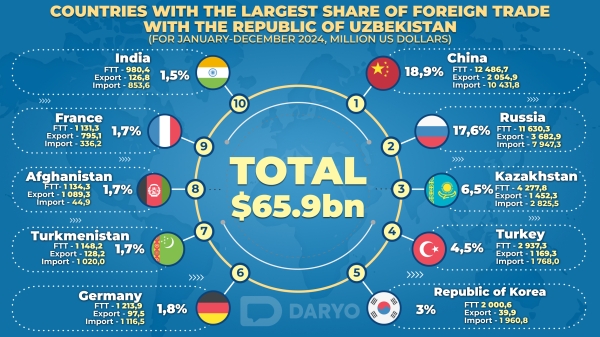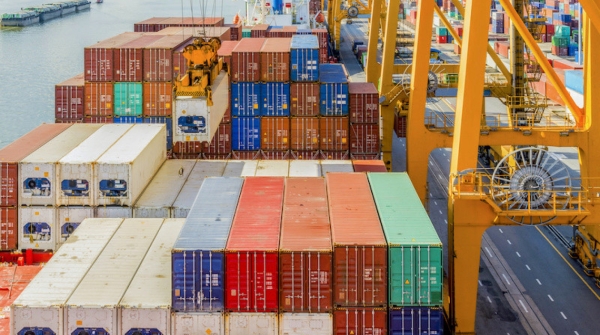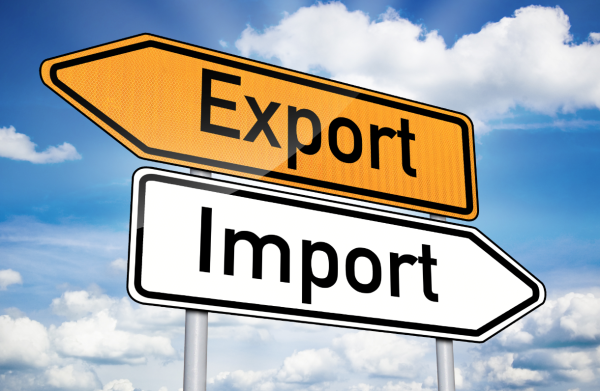Uzbekistan’s foreign trade turnover (FTT) reached $65.9bn in January-December 2024, marking an increase of $2.4bn, or 3.8%, compared to the same period in 2023. This growth reflects the country’s ongoing efforts to stimulate exports, optimize imports, and maintain a balanced trade environment.
In terms of the foreign trade balance, Uzbekistan’s exports totaled $26.95bn, reflecting an 8.4% increase from 2023, while imports amounted to $38.99bn, marking a modest 0.8% increase. This resulted in a negative balance of $12.04bn.

Key Trade Partners
China remained Uzbekistan’s largest trade partner, contributing 18.9% of total FTT in 2024. Total trade with China reached $12.49bn, a decrease from $13.83bn in 2023. Exports to China declined to $2.05bn from $2.29bn, while imports fell to $10.43bn from $11.34bn. Despite the decrease, China consistently topped the trade list.
Russia emerged as the second-largest trade partner, accounting for 17.7% of total FTT in 2024, up from 16.2% in 2023. Total trade with Russia rose to $11.63bn, an increase from $10.16bn in 2023. Exports to Russia grew to $3.7bn from $3.5bn, while imports expanded to $7.9bn from $6.7bn.
Kazakhstan remained the third-largest trade partner, contributing 6.5% to total FTT in 2024, down slightly from 7.0% in 2023. Total trade with Kazakhstan reached $4.28bn, reflecting a marginal decrease from $4.49bn in 2023.
India, which replaced Kyrgyzstan in Uzbekistan’s top trade partners list, recorded a notable increase. Uzbekistan’s FTT with India for 2024 reached $980.4mn, with exports totaling $126.8mn and imports accounting for $853.6mn.

Trade with CIS, EAEU, and Global Regions
The CIS countries have become increasingly important to Uzbekistan’s foreign trade, accounting for 35.1% of the total FTT in 2024. This represents a 2.2% increase compared to 2023. In 12M24, Uzbekistan’s foreign trade turnover with the CIS countries totaled $23.12bn, with exports reaching $9.06bn and imports amounting to $14.06bn.
The CIS free trade zone positively contributed to the growth of Uzbekistan’s overall foreign trade. The highest trade volumes were recorded with Russia (50.3%), followed by Kazakhstan (18.5%) and Turkmenistan (5.0%).
The EAEU, consisting of Russia, Belarus, Kazakhstan, Armenia, and Kyrgyzstan, recorded a trade turnover of $17.5bn, with exports totaling $5.83bn and imports reaching $11.66bn in 12M24. The union’s unified customs system and the free movement of goods, services, migrants, and capital promote robust trade ties.
The structure of foreign trade turnover reveals that Europe was the largest trading partner, accounting for 42.3% of the total FTT. Exports to Europe totaled $14.1bn, while imports from the region stood at $13.8bn. Asia followed closely, contributing 46.1% of the total, with exports amounting to $8.5bn and imports reaching $21.8bn. Other regions such as Africa, North America, South America, and Australia contributed a combined total of 2.6%.
Sectoral Insights
Exports from Uzbekistan have been bolstered by a range of products, including industrial goods, food products, chemicals, and agricultural produce. In 2024, the number of exporters reached 7,756, and total exports (excluding non-monetary gold) amounted to $19.47bn, marking a 16.5% increase from the previous year. The largest export categories were industrial goods, food products, and chemicals, with fruits and vegetables showing notable growth in export volumes.
Textile exports, however, saw a slight decline in 2024, totaling $2.87bn, or 10.6% of total exports. The majority of textile exports were yarn (43.2%) and finished products (39.2%). Agricultural exports, especially fruits and vegetables, showed strong growth, with 2.04mn tons exported, a 15.8% increase from 2023. The value of fruit and vegetable exports reached $1.55bn, reflecting a 31.2% increase.
Additionally, in January-December 2024, Uzbekistan’s services exports totaled $7.2bn, accounting for 26.7% of the country’s total trade exports. This marked a 27.7% increase compared to the same period in 2023. The largest portion of services exports was driven by travel (tourism), which made up 48.8%, followed by transport services at 35.7%, telecommunications, computer, and information services at 8.6%, and other business services at 3.5%. Within the “other services” category, insurance and pension services contributed 0.9%, financial services accounted for 0.9%, and construction services made up 0.5%.

Uzbekistan’s imports in 2024 amounted to $38.99bn, a 0.8% increase from 2023. The majority of imports consisted of machinery and transport equipment (34.6%), industrial goods (15.5%), and chemicals (12%). Throughout 2024, Uzbekistan imported goods and services from 172 countries. The bulk of imports came from major trading partners including China, Russia, Kazakhstan, the Republic of Korea, Turkey, Turkmenistan, and Germany, which together accounted for over two-thirds of total imports.
Service imports amounted to $3.75bn in 2024, making up 9.6% of total imports, and saw a 21.5% increase compared to 2023. Travel services (tourism) led the category with a 50.9% share, followed by transport services (19.2%), telecommunications, computer, and information services (9.2%), and other business services (7.3%). The “other services” category accounted for 13.3% of service imports, including significant portions for intellectual property use (3.8%), maintenance and repair services (3.1%), and construction services (2.9%).
Within industrial goods, imports totaled $6.05bn, a 4.2% decrease from the previous year, accounting for 15.5% of the overall import value. Major imports in this category included iron and steel ($2.67bn), metal products ($814.7mn), textile yarn, fabrics, and finished products ($582.1mn), and rubber products ($457.9mn).




